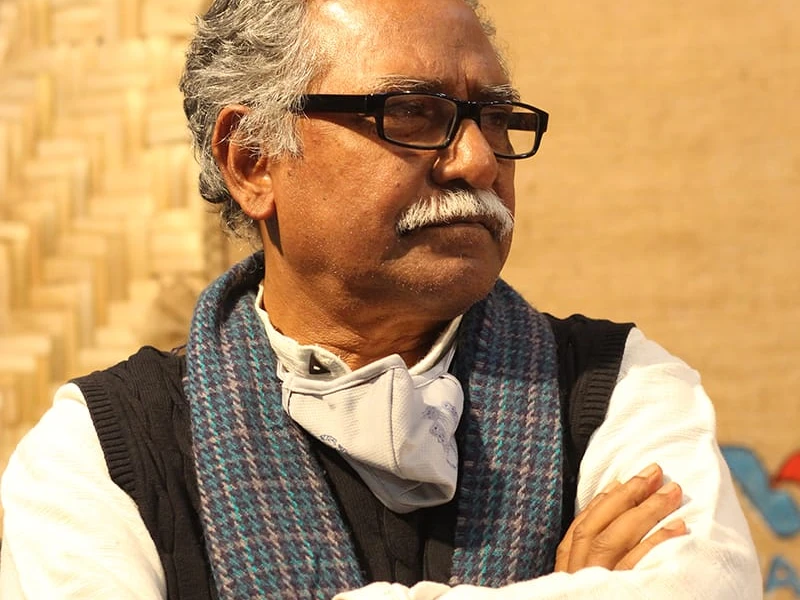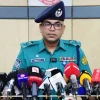Professor Anu Muhammad, member of the Ganatantrik Odhikar Committee, has said that three political parties currently influence the interim government, with Jamaat-e-Islami exerting the most authority and having the strongest voice among them.
Speaking at the closing session of the Political Convention of Marginalised Communities at the BMA Bhaban in Dhaka on Friday, he described recent attacks by “mob terrorists” as a grave concern, accusing the government of failing to act decisively.
“The 5 August uprising was a people’s revolution in which citizens from all walks of life participated,” said Professor Anu Muhammad.
“For years, people endured oppression and exploitation, and their anger had reached an explosive level. United, they removed Sheikh Hasina from power. During that process, a dream of a just and equal Bangladesh emerged—one that is still visible on the walls across the country,” he said.
He, however, warned certain groups who had previously hidden under false identities have resurfaced to create new divisions.
“Those who once disguised their affiliations have now reappeared, creating a situation of greater inequality and fear. People are being targeted for their religious, gender or ethnic identities,” he said.
Comparing the current environment to the authoritarianism of the Awami League era, he remarked, “The attackers are saying people must practise religion, think and engage in politics as they dictate. That is fascism. We saw it during the Awami League’s rule, and now we are witnessing an even more frightening version of it.”
Criticising the government’s inaction, he added, “What is the responsibility of this interim government? We would not have held them accountable if they had tried to stop these attacks or at least raised their voice strongly. But we have seen no such effort. In some cases, the government has even tried to legitimise mob terrorism or protect those responsible.”
Referring again to the government’s political dynamics, Professor Anu Muhammad said, “We can see the influence of three parties on this government. Among them, Jamaat-e-Islami’s voice is the loudest, and its authority is the strongest. Jamaat wants to showcase its growing dominance in various sectors.”
Calling the convention a truly representative platform for the country, he added, “This gathering of diverse ethnic communities must be united to build a democratic Bangladesh where there is no distinction between marginalised and mainstream citizens, a country of equal opportunities for all.”
Communist Party of Bangladesh (CPB) General Secretary Abdullah Kafi Ratan, addressing the event, said there has been much debate about the definition of marginalised communities.
“Some are marginalised economically, others ethnically, and even within religion, some groups are pushed aside,” he said, adding, “The crisis facing marginalised groups has deepened over the past year.”
He said within the Muslim community, Sufi and spiritual practitioners have now become marginalised. “The rule of Wahhabis and Maududists is prevailing. We saw attempts to destroy the shrine of Hazrat Shah Paran (RA). What problem is there if someone maintains long hair as part of his spiritual practice? Who gave self-proclaimed barbers the right to dictate? A man’s body, that of Nural Pagla, was exhumed and burnt simply because his spiritual path differed,” Ratan said.
Criticising the constitution for denying the existence of other national identities, he said, “Bangladesh is not a one-nation country. You cannot define a nation by numbers. It is the state’s duty to protect national identities—but it has failed to do so.”
Sufi Mobarak Hossain Murad, founder chairman of the Sufism Research Foundation, said, “From 6 August, right after the uprising, shrines were attacked, and by the 7th, religious courts and darbars were being looted. Was that what the revolution was for? No Sufi has embezzled billions or built houses in Begum Para. Those who looted thousands of crores should be brought to justice. Why attack those who speak of humanity?”
Sabuj Tanti, a leader of the Tea Workers’ Trade Union, called for preserving their traditional and cultural heritage.
Bangladesh Indigenous Union leader Srikanta Mahato urged indigenous communities to organise locally and unite against land grabbers who have seized their ancestral lands and homes.
The convention’s final session was presided over by Hasan Shah Dipu Nuri Sureshwari, central executive member of the World Sufi Organisation. Representatives of various ethnic groups, including Pranab Hajong from the Hajong community, Mahadev Mahato from Baraigram in Natore, Niti Munda of the Munda community from North Bengal, and Dipankar Orao of the Orao community, also addressed the event.
The convention began on Friday morning with the national anthem and group songs. Four sessions were held throughout the day, attended by representatives from 55 ethnic communities across the country.


 Prev Post :
Prev Post :
-1761987045.webp)